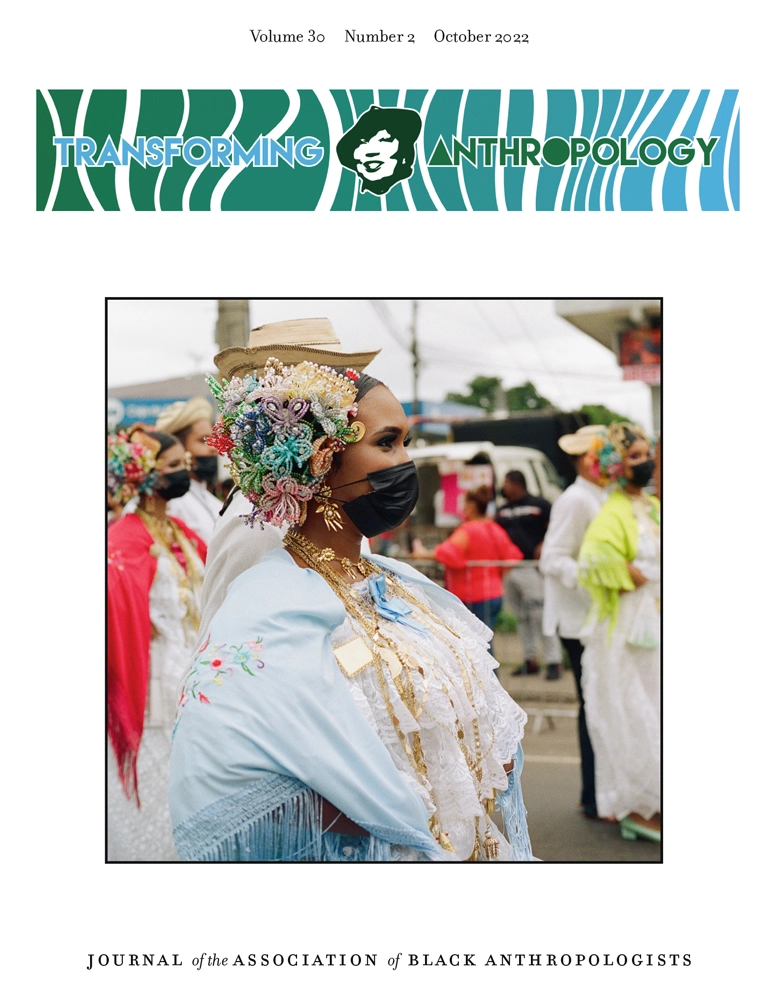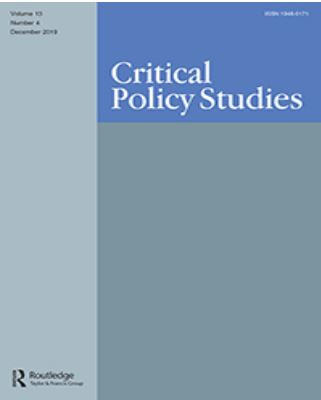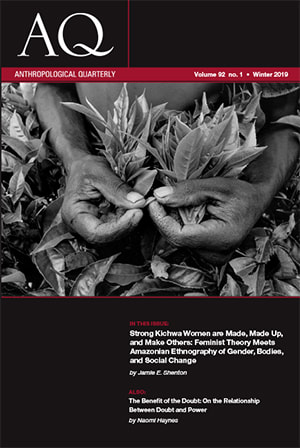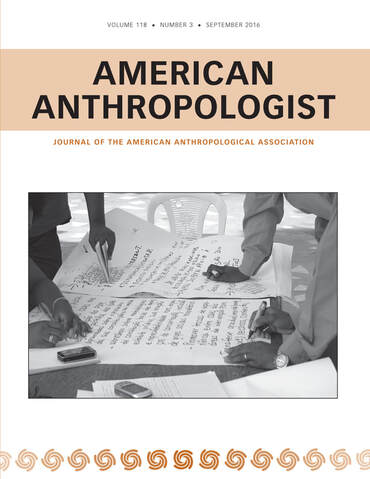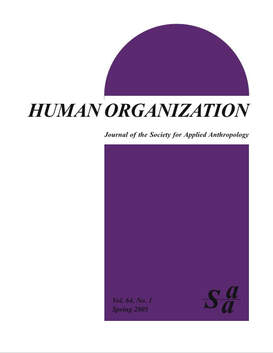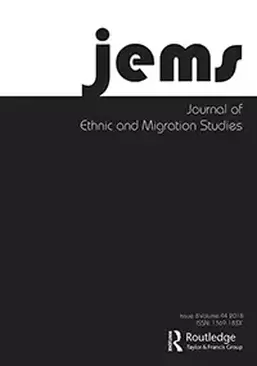Journal Articles
In addition to my book, Implementing Inequality, the journal articles below investigate how the staffing structures of development NGOs can inadvertently replicate many of the global inequalities of nation and race that these organizations try to combat in their programming. The JEMS, AA, and AQ articles look at how definitions of "local" versus "international" staff constrain development professionals, while the HO and CPS articles examine how administrators' concerns come to carry more weight than those of the field staff.
I have also edited two collections that explore Africa and development through anthropological and critical lenses. Further work on African social hierarchies, educating policy professionals in anthropology, and comparative ethnographies of policy implementation can be found on my CV.
I have also edited two collections that explore Africa and development through anthropological and critical lenses. Further work on African social hierarchies, educating policy professionals in anthropology, and comparative ethnographies of policy implementation can be found on my CV.
|
Visible Materials, Invisible People: How Branding in International Development Reproduces Inequality
Transforming Anthropology (2022), Volume 30, Issue 2 Abstract
A democratization program in postwar Angola offers an example of contemporary development work and its branding: donors’ bureaucratized practice of claiming credit for any attempt at social improvement while simultaneously distancing themselves from failures. Development branding achieves its claims-making and distancing effects by emphasizing, in institutional narratives of development work, the role of material resources over the larger social contributions of local staff and beneficiaries. Development agencies’ increased bureaucratization, including their focus on branding, is not incidental to the undertaking but an outgrowth of shared histories; bureaucracy as social form, including institutional narratives emphasizing the material, and development as industry are both rooted in racialized and classed systems of hierarchical relations. Branding practices work to conceal and deepen these relations. A complete accounting of development must include attention to how—in form, action, and representation—it perpetuates historical relationships of inequality in addition to documenting their effects. |
|
Front-line Work and Interpretive Labor in an Angolan Development Program
Critical Policy Studies (2019), Volume 13, Issue 4 Abstract
This paper ethnographically examines the in-country workforce of a decentralization program in postwar Angola. I compare the everyday activities of rank-and-file field staff to the policy prescriptions of the Good Governance in Angola Program (GGAP), carried out from 2007 to 2012. Focusing in particular on the work of the program’s Community Development Coordinators, the analysis reveals how field agents and administrative staff held highly discrepant ideas about implementation work that resulted in inadequate support and resources for community-level activities. Such divergent understandings of implementation work stem from pervasive power inequalities within the development industry that both produce and are supported by an inequitable division of interpretive labor; the relational work of understanding another’s perspective and responding accordingly. Development’s front-line agents are tasked with a double burden of interpretive labor and this aspect of their work, though crucial, goes unrecognized in the industry, simultaneously creating the conditions within which they can creatively respond to local contingencies and inadvertently concealing the true nature of their work and the extent of their resource needs from supervisors. |
|
Refusing the Development NGO: Departure, Dismissal, and Misrecognition in Angolan Development Interventions
Anthropological Quarterly (2019), Volume 92, No. 1 Abstract
Nongovernmental organizations (NGOs) working in international development increasingly follow a neoliberalized management model, hiring professional employees to conduct the work of social transformation under a bureaucratic regime that sees the recruitment and retention of staff members as rational transactions between employer and employee. Such managerialist thinking holds that staff members represent bundles of skills and knowledge to be sorted and allocated according to the requirements of work, that they seek to exchange their labor for payment, and that they may justifiably be fired for misdeeds like misuse of materials, misrepresenting themselves, or poor work quality, as determined by the institution. I use the example of local staff members resigning and being fired from an international democratization intervention in postwar Angola to argue that some development professionals refuse to occupy such management-defined subject positions, asserting instead their independent moralities about the place of implementation staff in international development work. A central concern for these local staff is their presumed inferiority to international staff, a dichotomy increasingly mapped onto that of implementation vs. administration staff rather than local vs. international in the larger development industry. Development NGOs here misrecognize the resignations and firings of implementation staff as personal decisions or failures rather than as responses to structural inequalities within the industry, leaving intact unequal relations of power within the very profession meant to combat inequality on a global scale. |
|
Local in Practice: Professional Distinctions in Angolan Development Work
American Anthropologist (2016), Volume 118, No. 3 Abstract
Development workers employed by international nongovernmental organizations (NGOs) are commonly classified as national (local) or international (expatriate) staff members. The distinction is presumed to reflect the varieties of expertise required for the work and the workers’ different biographies. I examine the experiences of Angolans working in an international democratization program to demonstrate how some professionals at the lowest tiers of international development NGOs engage in social practices that strategically emphasize or conceal certain skills, kinds of knowledge, or family circumstances to fulfill industry expectations of “local staff.” Doing so allows them access to employment with international organizations and pursuit of a variety of personal and professional goals. These practices reinforce hierarchical inequalities within the development industry, however, limiting these workers’ influence over programmatic action. I argue that professional distinctions among development workers are social achievements and instruments of strategic manipulation by individuals and NGOs rather than accurate reflections of work or workers. The case study provides insight into the institutional reproduction of hierarchical inequalities and the complexly social reasons why those who suffer their limitations may act in ways that reinforce, rather than resist, unequal social structures. |
|
Participation Denied? The Professional Boundaries of Monitoring and Evaluation in International Development
Human Organization (2016), Volume 75, No. 4 Abstract
Monitoring and evaluation (M&E) of international development programming is expected to produce “evidence-based” insight for both policy and practice. While supportive of evidence-based decision making, critics of contemporary M&E practice charge that it reflects the development industry's deepening audit culture, causing deleterious effects. I offer the example of a democratization program in postwar Angola to examine how the design and conduct of M&E in this case reinforced social boundaries and hierarchies of power among the program's own staff members. These professional staff hierarchies effectively barred ground-level evidence noted by implementation agents from being incorporated into the program's formal knowledge base. The case demonstrates that monitoring and evaluation procedures within development programs, and perhaps in other bureaucracies, must be examined for their social uses and effects among practitioners. These effects not only weaken the production of actionable knowledge for development but, by reinforcing social inequalities within the very industry tasked to combat them, also structurally threaten the endeavor. |
|
Development Mobilities: Identity and Authority in an Angolan Development Programme
Journal of Ethnic and Migration Studies (2013), Volume 39 Abstract
This ethnographic essay considers how international non-governmental organisations are able to make claims to authoritative knowledge about development work by offering the transnational mobilities of their staff members as evidence. I examine how one professional's biography—his trajectory from Angola to Britain and back again—was differentially presented to external donors and internal staff members as befitting the institutional needs of an international good governance intervention in Angola. These presentations reflect a commoditisation of the cosmopolitanism of professionals' histories in the service of development as a regime of mobility. I argue that, in this development regime, a global hierarchy prevents some individual professionals, particularly those from developing nations, from realising the same benefits of their cosmopolitan mobility as professionals from industrialised nations. While one of mobility studies' many strengths is that it highlights global interconnectedness, social scientists should not read equality in these interconnections but examine how patterns of transnational mobility may produce and reproduce global structures of inequality. |
